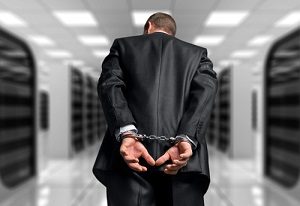Question of the Week — Should the CEO Be Held Accountable?: Lessons from the Insys verdict.

In a shocking first, a federal jury has convicted an opioid-company CEO and other top executives of a criminal racketeering conspiracy. Insys founder and chairman John Kapoor and four other executives bribed doctors to overprescribe a highly addictive fentanyl painkiller, and ran a phony call-center to defraud insurance companies into paying for the expensive drug. Although the company itself had already paid over $150M for the wrongdoing, prosecutors were not content until they had secured guilty pleas from several executives and subjected Kapoor and his codefendants to a grueling 10-week criminal trial. The Boston jury’s conviction of all defendants proved the public appetite to mete out punishment to corporate criminals, particularly in the context of the opioid crisis.
The use of RICO, the Racketeer Influenced and Corrupt Organizations Act, was a bold feature of this prosecution. RICO is a complex charge typically used for criminal organizations and rarely against corporate executives. RICO charges may have been deemed appropriate here, due to extreme patient harm, the extensiveness and audacity of the enterprise, and the severity of the opioid epidemic, which claims more than 100 lives per day in the U.S.
Holding chief executives liable for corporate misdeeds used to be more commonplace than it is today. Indeed, historically individual executives were convicted of white-collar crimes, not corporations. Chief executives went to prison following the savings and loan crisis in the 1980s and the fall of Enron in 2006. But with the collapse of Enron came the undoing of Arthur Anderson, which wrought seemingly unfair collateral consequences to tens of thousands of employees and shareholders. Fear of unacceptable collateral consequences to the economy and innocent parties has since resulted in companies (such as banks following the 2008 mortgage crisis) and their executives paying large monetary fines and promising to behave better in deferred-prosecution agreements rather than suffer criminal convictions.
It is questionable whether actions short of holding the top-executives accountable actually deter bad behavior by corporations. Pfizer, as an example, has paid substantial penalties for illegal marketing, bribes, and other crimes, but it has done so in no fewer than three successive deferred-prosecution agreements. Kickback misconduct similar to that of Insys executives features in at least four of CC’s top ten healthcare recoveries of 2018, but without findings of individual-leadership responsibility: Amerisource Bergen (kickbacks to doctors, $625M), Actelion Pharmaceuticals (kickbacks, $360M), Health Management Associates (kickbacks and unnecessary ER admissions, $260M), and AstraZeneca (abusive and misleading off-label marketing, $110M).
The day of reckoning has come for those responsible for the opioid crisis: prosecutors have charged drug companies, large distributors, their owners and chief executives, and numerous doctors and other professionals.
Are Kapoor’s and his cohorts’ convictions a harbinger of top-executive accountability outside of the opioid context? Should CEOs of other types of companies be subject to criminal conviction (including under RICO) for corporate wrongdoing, or is that a bridge too far?
Do you know about serious corporate wrongdoing for which a company and perhaps its executives should be held accountable? Read more to learn whether you might have a whistleblower case:
- All About Healthcare Fraud
- Anti-Kickback Statute and Stark Law
- Our Posts About Insys
- Our Posts About Opioid
- Top Ten Healthcare Recoveries of 2018
- I Think I Have a Whistleblower Case
- Whistleblower FAQs
- Submit a Confidential Whistleblower Claim
Tagged in: Anti-Kickback and Stark, Criminal Proceedings, Defendants, Dosage Fraud, Healthcare Fraud, Lack of Medical Necessity, Off-Label and Unapproved Use, Pharma Fraud, Question of the Week,